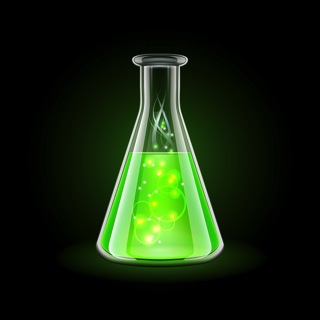Common household chemicals toxic to Hashimoto’s hypothyroidism patients

It’s amazing how toxic the standard American household is. Chemicals that are toxic to the thyroid, brain, immune system, hormonal system, liver, and more are in virtually every household and body product used by the average person. When seeking to manage your Hashimoto’s hypothyroidism, it’s important to “go green” and use non-toxic house and body products.
When managing Hashimoto’s hypothyroidism, you need to remove as many burdens to the immune system as possible. Toxic loads are stressful and promote inflammation, which in turn promotes Hashimoto’s. Research has found links between toxins and Hashimoto’s hypothyroidism.
Check out the effects these products have on the human body:
Dish soaps, detergents, fabric softeners, air fresheners, soaps, shampoos, perfumes, skin creams, etc.: The fragrances in these products contain phthalates which have been shown to lower sperm counts, cause early puberty in girls, raise the risk of cancer and lung problems, and harm the organs. Go for unscented versions of these products or those made with essential oils. You can also make your own household cleaners very easily and cheaply.
Spot removers, upholstery and carpet cleaners, and dry cleaning solutions: These products contain perchloroethylene, or PERC, which is toxic to the brain and increases the risk of cancer. Go for non-toxic stain removers and dry cleaning services.
Antibacterial soaps and hand sanitizers: These products contain triclosan, which was first registered as a pesticide. Triclosan promotes the development of drug-resistant bacteria, is a carcinogen, and disrupts hormone regulation. Wash your hands with a non-toxic soap and look for a non-toxic hand sanitizer.
Fabric softener liquids and sheets: These contain quats, or quarternary ammonium compounds. Quats are another type of anti-bacterial compound that promote drug-resistant bacteria. Quats are also linked with respiratory disorders and are well known triggers of illness in those with chemical sensitivities. Vinegar, essential oils, and the use of wool dryer balls are great ways to soften your clothes naturally and prevent polluting the air inside and outside your home.
(Here’s a neat tip if you’d like to get the toxic reek of fabric softener or other perfumes out of your clothes: put the item in a bag with activated charcoal for as long as necessary. Activated charcoal is great at absorbing unwanted odors.)
These are just a few examples of toxic chemicals lurking in everyday products most people and their children use. You also have to consider artificial flavors, colors, and preservatives in foods and beverages, which introduces a whole other world of toxins to the human body. Oh, and don’t forget chemicals and pollutants in our water and air.
All of these things make it no mystery as to why autoimmune diseases such as Hashimoto’s hypothyroidism are so prevalent today, affecting more than 23.5 million people in the U.S.
Our environment contains more than 85,000 synthetic chemicals yet only a handful of them have been tested. Toxins have been linked with the explosion in the rates of autoimmunity such as Hashimoto’s hypothyroidism and even autism, which is increasingly being recognized as neurological autoimmunity.
Toxins are also a problem for the growing number of people dealing with chemical sensitivities, who get sick when exposed to different synthetic chemicals.
Our bodies were simply not designed to handle such a heavy toxic burden, which has been shown to begin in the womb. The best thing you can do for your Hashimoto’s hypothyroidism and your children’s health is remove toxins as much as possible from your life and your budget (so companies take notice) and use natural alternatives instead.
Fortunately, through an autoimmune diet, exercise, spending time in nature, good hydration, and using anti-inflammatory compounds such as glutathione precursors (the body’s master antioxidant), we can mitigate the effects of toxins on the body and help better manage Hashimoto’s hypothyroidism.
Ask my office for more information on how to help protect your body from toxins and manage your Hashimoto’s hypothyroidism.